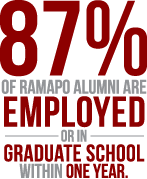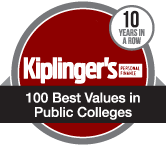College Catalog: 2015-2016
SSHS: Master of Science in Educational Technology (MSET)
Website: Master of Science in Educational Technology
(MSET faculty come from the following schools: SSHS and TAS)
Program Director:
- Richard Russo
Faculty:
- Nils Abate
- Evelyn Horner
- Grace Moone
- Eric Mountain
Faculty:
- Eva Ogens (SSHS)
- Richard Sciorra
- Cynthia Vitale
- Current as of September 2015
Faculty:
Resources:
The Ramapo College Program in Educational Technology can dramatically transform the roles of the teacher and student by bringing the world into the classroom. Advances in technology can accommodate diverse learning styles and performance levels, liberate teachers and students from the “one size fits all” model of education, enable students from dissimilar backgrounds to experience a common sense of accomplishment, provide bridges from school to career, and foster lifelong learning.
Ramapo College has been the recipient of competitive grant funding exceeding $6 million dollars from the National Science Foundation and New Jersey State Department of Education for teacher enhancement projects in science and technology.
Our courses are hybrid in design, blending the convenience of working at home or your own personal research space, with the advantages of face-to-face interaction with our professors and peers.
You will have the option of completing the NJ State Supervisors License by taking the four elective courses in the Masters in Ed Leadership Program.
All assignments and projects will be customized to the student’s own personal classroom and curriculum needs.
Utilize in-class assessed educational technology strategies as a highly effective classroom management tool!
There is an Optional Fully ONLINE Track for students whose personal demands preclude them from participating in a traditional on-campus commitment for two years. Embedded in this track is the further flexibility of moving back to on-campus offerings when desired.
The MSET program is aimed at certified teachers who possess a career goal of attaining higher levels of professional competence. The program requires four core courses, a two-credit web-based learning project (Practicum), and four electives for a total of 34 credits.
Outcome 1: Students will be able to develop and customize their own uses of technology to enhance the teaching and learning process in their classrooms.
Outcome 2: Students will be able to use technology to communicate information, ideas, and questions via the use of 21st century software and platforms.
Outcome 3: Students will be able to display and present scientific information and data through the Internet, multi-media software, and cutting edge telecommunications networks.
Outcome 4: Students will be able to familiarize teachers with concepts used in analyzing data.
Outcome 5: Applying methodologies for data analysis and problem solving using computer software applied to database development, graphic analysis, and systems thinking.
1. To remain in good academic standing, students must maintain a cumulative GPA of 3.0.
- Subject & Course # – Title & Course Description
- REQUIRED CORE COURSES: (All Courses are 4 Credits, Except EDTC-750):
- EDTC 631 - MET-BRAIN MIND TEACHING AND LEARNING
- EDTC 633 - TOOLS AND CONCEPTS FOR DATA ANALYSIS
- EDTC 635 - TOOLS FOR VISUALIZING INFORMATION
- EDTC 710 - TOOLS FOR DEVELOPING INSTRUCTION
- REQUIRED PRACTICUM:
- EDTC 750 - PRACTICUM IN LEARNING THEORY (2 Credits)
- EDTC 751 - INDEPENDENT STUDY PRACTICUM IN LEARNING THEORY
- ELECTIVES: SELECT FOUR
- EDTC 606 - TECHNOLOGY IN K-12 CURRICULUM
- EDTC 611 - DEVELOPING GRANTS AND OTHER EXTERNAL SUPPORT
- EDTC 613 - DIGITAL IMAGE ACQUISITION
- EDTC 616 - AUDIO VISUAL MEDIA PRODUCTION FOR EDUCATORS
- EDTC 619 - AUDIO VISUAL MEDIA II
- EDTC 620 - ASSISTIVE TECHNOLOGY
- EDTC 621 - INSTRUCTIONAL DESIGN
- EDTC 622 - MULTIMEDIA WORKSHOP
- EDTC 624 - METEOROLOGY, REMOTE SENSING TECHNOLOGY
- EDTC 628 - ASTRONOMY, K-12
- EDTC 632 - TECHNOLOGY & STORIES IN K-12 CURRICULUM
- EDTC 634 - ADVANCED DATA PROCESSING FOR EDUCATORS
- EDTC 639 - ADVANCED TECHNOLOGY IN THE CURRICULUM
- EDTC 645 - INSTRUCTION: WEB DESIGN ADVANCED
- EDTC 655 - METHODS OF TEACHING ENGINEERING
- EDTC 660 - NETWORKING AND HARDWARE
- EDTC 684 - SCIENCE AND HUMAN VALUES






